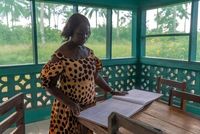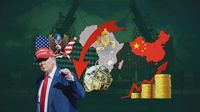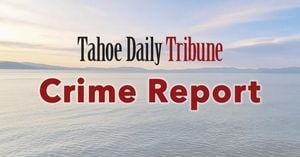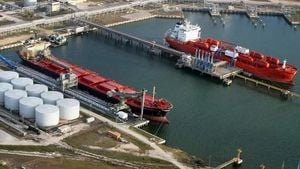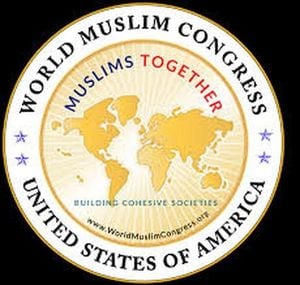On August 18, 2025, the United States unveiled a sweeping new visa rule for Nigerian citizens, mandating that all applicants disclose every social media username and handle they’ve used over the past five years. The US Embassy in Nigeria made the announcement via a statement on X, sparking immediate debate and concern across the country. "Omitting social media information could lead to visa denial and ineligibility for future visas," the embassy warned, emphasizing that every applicant must list all social media identifiers from the last half-decade on the DS-160 visa application form.
The Nigerian government, as of Monday, had not yet issued a formal response to this directive. The silence is notable, given the growing unease among prospective travelers and the broader public. For many Nigerians, the US remains a land of opportunity—whether for education, business, or family reunification. Now, that opportunity comes with new strings attached, and the consequences for noncompliance are severe.
This latest move is just one part of a much larger tightening of US visa and immigration policies, a trend that has disproportionately affected African countries in recent years. According to reporting by BBC and other outlets, the Trump administration has steadily ramped up restrictions, not only for Nigerians but also for citizens of Cameroon and Ethiopia. In July 2025, Nigeria formally urged the Trump administration to reconsider a controversial restriction that slashed the validity of temporary-stay visas for Nigerian visitors to just three months—a rule that also applied to Cameroon and Ethiopia.
The impact of these policies extends well beyond Nigeria’s borders. In June, the US imposed travel bans on citizens from 12 countries, seven of which are African. Heightened restrictions were also applied to seven additional nations, including three from Africa. The message from Washington has been clear: improve traveler vetting or face the risk of outright bans. Zimbabwe, Malawi, and Zambia were among the 36 countries, most of them African, that received such ultimatums from the US government.
In a statement issued on August 14, 2025, the US State Department defended the policy, saying, "The Trump Administration is protecting our nation and our citizens by upholding the highest standards of national security and public safety through our visa process." The department’s stance is that these measures are essential for safeguarding the US from potential threats, though critics argue that they unfairly target African nations and create unnecessary barriers for legitimate travelers.
Perhaps the most tangible example of these barriers is the new bond policy announced on August 12, 2025. Under this rule, Malawians and Zambians seeking tourist or business visas to the US must now pay bonds of $5,000, $10,000, or even $15,000 as part of their application process. The financial burden is significant, particularly for applicants from countries where the average income is a fraction of these amounts.
Meanwhile, the effects of US policy changes are being felt across the African continent in ways that go far beyond visa desks and border crossings. In the same week as the Nigerian visa announcement, US Senator Jack Reed and US Representative Gabe Amo traveled to Liberia and Ghana for high-level talks on economic, humanitarian, trade, and security issues. Their visit, reported by The Boston Globe, comes at a time when both countries are still reeling from deep aid cuts following the Trump administration’s effort to dismantle USAID. The result? Schools, health programs, and development projects have been left underfunded, forcing local governments and NGOs to scramble for alternative sources of support.
Senator Reed’s connection to West Africa is more than diplomatic; he authored the Liberian Refugee Immigration Fairness law, which created a pathway to citizenship for thousands of Liberians living in the United States. Representative Amo’s ties are deeply personal—his parents immigrated to Rhode Island from Liberia and Ghana. Their presence in West Africa this week underscores the ongoing effort to rebuild relationships that, until recently, were taken for granted. Reed and Amo are meeting with government leaders and non-governmental organizations, hoping to signal a renewed commitment to partnership and support. They are expected to return to the US later in the week.
Yet, as US officials attempt to reassure their African counterparts, a new and perhaps more formidable competitor is waiting in the wings. In Liberia, American diplomats are openly worried that China could step in to fill the void left by US aid cuts. Beijing has made no secret of its ambitions on the continent, offering investment, infrastructure, and trade deals at a time when Washington’s policies are seen as increasingly hostile.
Nowhere is this high-stakes competition more evident than in the realm of trade. In 2025, President Donald Trump’s escalating trade war has hit Africa harder than any other region, according to Financial Times and Reuters. Factories in Lesotho have shuttered, tens of thousands of jobs in Madagascar hang by a thread, and the once-celebrated African Growth and Opportunity Act (AGOA) is now a shadow of its former self. With intra-African trade stuck at just 15%, the continent is leaving an estimated $500 billion in potential untapped. The promise of the African Continental Free Trade Area (AfCFTA)—a landmark agreement designed to boost intra-African commerce—now faces significant risks due to US trade policies.
This confluence of events has forced African leaders into a difficult position. Should they bow to Washington’s economic pressure, or pivot toward greater self-reliance and new alliances, such as those offered by the BRICS bloc and dollar-free trade arrangements? As China opens its doors and the US slams them shut, Africa finds itself at the center of a high-stakes struggle for economic independence and influence. The continent’s choices in the coming months will have profound implications not only for its own development, but for the global balance of power.
As all these developments unfold, the question on many minds is whether the US’s hardline approach will ultimately strengthen its security and economic interests, or if it will drive African nations further into the arms of competitors like China. For now, the only certainty is that the stakes have never been higher, and the world is watching closely as Africa navigates this new era of global competition and scrutiny.
